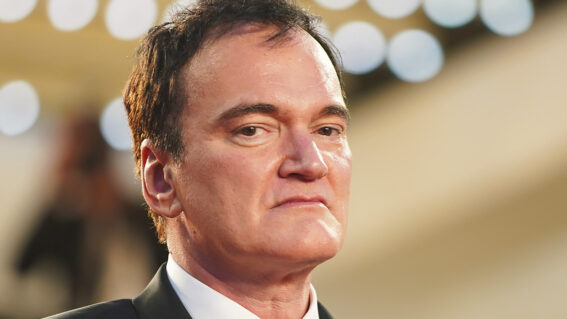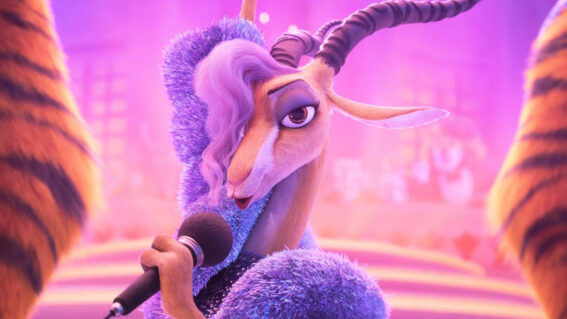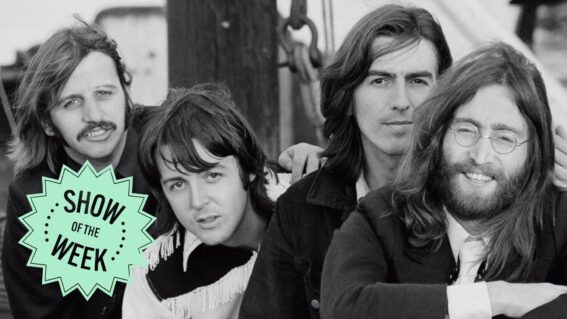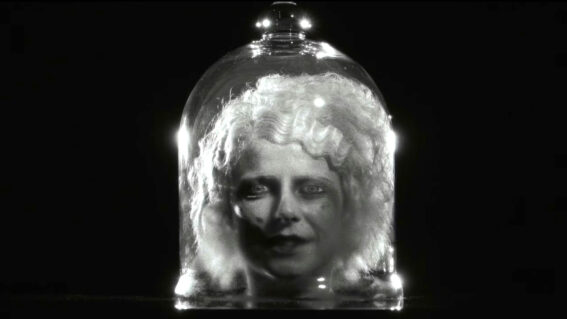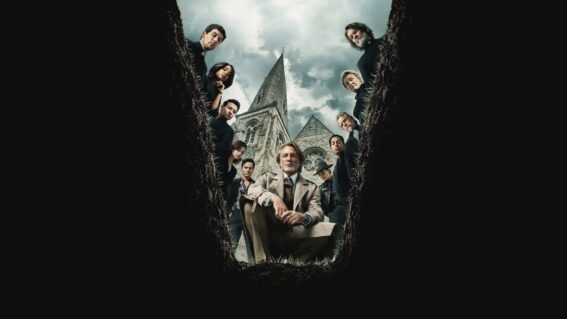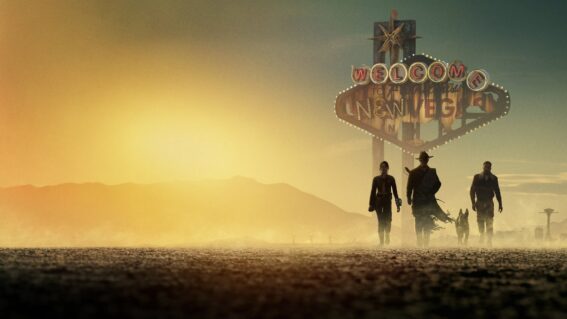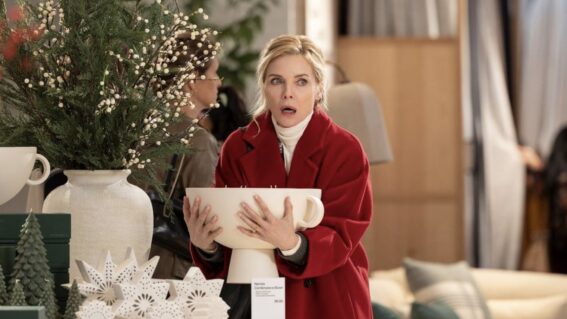The highs, lows and woes of the Power of Inclusion Summit (UPDATED with response)
“I’m still confused about who exactly it was supposed to support.”
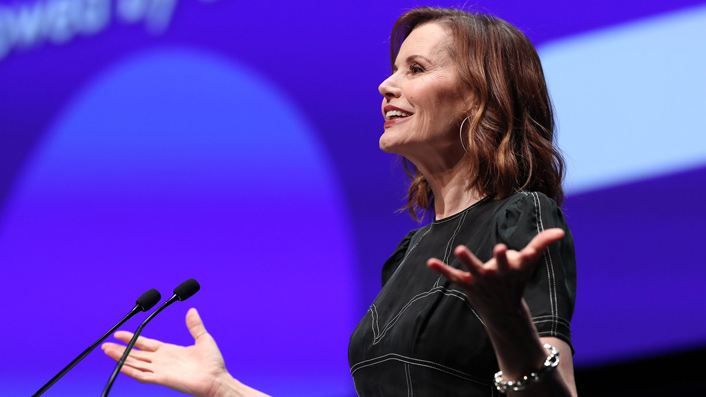
Amanda Jane Robinson attended last week’s Power of Inclusion Summit, featuring 60+ international and local voices sharing their thoughts and experiences on representation and inclusion in the industry. A young award-winning filmmaker herself, Robinson details the wins and missed opportunities of the summit.
Update, 11 Oct 2019: NZ Film Commission, organisers of The Power of Inclusion, has contacted Flicks about this piece and “outlined the inaccuracies we would most like corrected”. Please scroll to the foot of the article to read their response.
Update, 15 Oct 2019: Local screen icon John Barnett contacted Flicks with some comments about the NZFC response which you can read here.
It’s been a week since the Power of Inclusion Summit, and I’m still confused about who exactly it was supposed to support.
The Power of Inclusion was a two-day summit focused on representation and inclusion within the media and entertainment industries. The event was held at Auckland’s Aotea Centre last Thursday and Friday. Among the 60 speakers were Geena Davis, Jacinda Ardern, Magda Szubanski, Yara Shahidi, Steven Canals and Niki Caro.
While the summit was promoted as an excellent opportunity for New Zealand filmmakers, many would-be attendees were held back by the exorbitant ticket prices. I myself would not have been able to afford to attend if it weren’t for my media pass.
Standard tickets cost $495+GST, with tickets for students and new filmmakers going for $350+GST, or to put it another way, two weeks of my rent. On top of this immediate cost is the two days delegates with weekday jobs would have had to take off.
Filmmaker Elana Tkatch told Newshub this is a “heck of a lot” of money for many people:
“It works out to be like almost, after-tax, like half my [weekly] pay after I pay all my loans and stuff back. I also have to take two days off work. It’s just not achievable.”
After numerous complaints about ticket prices, 169 scholarships were released for low-waged filmmakers or those from communities underrepresented in the industry, dispersed through various industry guilds and organisations.
However, for many I spoke to at the summit, the addition of Geena Davis to the programme lineup was the major pull in deciding to attend. This announcement was the first time many media outlets covered the conference, meaning it was the first many people heard about the conference. The issue for would-be scholarship candidates is that by the time this announcement went out, less than three weeks before the event, the scholarships had already been allocated two weeks prior.
The New Zealand Film Commission defended the prices, stating they are in line with other industry events. Although, many would-be delegates said the cost should have been closer to that of the annual Big Screen Symposium, a similar two-day conference that generally costs $345 for a standard ticket, $295 for industry guild members, and $195 for students, with further concessions available for those who purchase earlybird tickets.
Aside from the cost, the conference did a decent job of inclusion in some areas, featuring a complimentary creche for working parents, a New Zealand Sign Language interpreter, as well as opening with a pōwhiri and including kupu Māori in its programme titles. But there were also many areas that felt strained and strange.
The large majority of the summit’s speakers were wealthy white women interested in “lean-in” feminism — a focus on women CEOs, leadership strategies, and how many women have directed the top 100 highest-grossing films of all time — rather than the issues that more closely affect many underrepresented filmmakers. A summit attendee who wanted to remain anonymous decried the summit’s focus on Hollywood, noting that many of the laws, statistics, and industry factors discussed were irrelevant in a New Zealand context.
There were many uncomfortable moments during the festival; a woman from Sweden making fun of the hongi and asking unnecessary statement-questions of an indigenous woman in a Q+A session; a woman from LA saying she’s worried about shifting the focus away from “women” and onto “intersectionality” because that “brings men back into the conversation” which is something to “be careful of”; Magda Szubanski making awkward statements about the Israel-Palestine conflict.
The summit was hosted by the New Zealand Film Commission and Women in Film and Television International, with support from The Walt Disney Company. I have to admit how strange it was to hear rallying cries for changing the system followed by gratitude to Disney, which with its capital, essentially is the system. It was interesting to hear Niki Caro, in her answer to whether a Chinese director should have helmed her forthcoming Mulan, speak of the film as not just representative of Chinese culture, but “Disney culture”.
Nevertheless, there was a fair share of filmmakers who challenged the scope of the summit. In his address on Thursday morning, Heperi Mita (Merata: How Mum Decolonised The Screen) noted that where overt racism may have decreased in the industry since his mother Merata Mita’s days, economic exclusion has increased. He noted that many of his Māori filmmaker peers could not afford the ticket price to attend the summit. He also discussed the capitalist structures that limit Māori access to sovereignty over their own stories, pointing to the cost of licensing documentary archive footage as a major limitation, even when those archives belonged to his own mother.
Another point Mita made is that the precarious nature of the screen industry means that it is hard for workers to bring up issues within projects. “If you are going from contract to contract and you speak up about something you disagree with, that person doesn’t have to hire you again because it’s a competitive industry. You just keep your mouth shut and you go from job to job to job.”
In a panel discussion, Stallone Vaiaoga-Ioasa (Three Wise Cousins) brought up the burden of representation placed on individuals from minority backgrounds to represent their entire identity group. He noted that if one Pacific filmmaker makes “a shit film”, that can mess it up for Pacific filmmakers down the line, especially where funding bodies are concerned with prior models of successful films with similar audiences. While the panel discussion moved on to other topics, I found myself wishing there had been a whole panel on this phenomenon.
Later in the day on Thursday was an oddly-structured set of talks called Being The Change, where seven creatives and activists from underrepresented backgrounds were given six minutes each to speak on the issues that affected their community. This session included actor Ana Scotney; writer, poet and disability activist Henrietta Bollinger; entertainer and Managing Director of Diversity New Zealand Philip Patston; interdisciplinary artist and co-founder of FAFSWAG, Tanu Gago; theatre-maker and FAFSWAG collaborator Jaycee Tanuvasa; award-winning news journalist and co-host of Al Jazeera’s The Stream Malika Bilal; and filmmaker and activist Julie Zhu.
For me, this felt like the most genuine, encouraging session of the summit, and I only wished the myriad topics these incredible artists were speaking about — story sovereignty, authorship, trans representation, respectful engagement vs tokenism, disability representation, decolonisation — were prioritised and given more time and space, rather than all being crammed into one session.
During this session, filmmaker and activist Julie Zhu criticised phrases such as diversity, inclusion, and representation, saying they are useless without meaningful action behind them:
“We’ve heard that cliche that diversity is inviting someone to your party and inclusion is asking them to dance. The point is with asking someone to dance you are still the one with the power as the host. You determine the music, the venue, the context, the rules. If they don’t adhere you always have the power to kick them out. So inclusion really is no better.
“The last few years I’ve drifted towards words like decolonisation as a means to acknowledge the power structures that are in play in our society. We cannot start from a place of inclusion as if all the inequality and inequity we see now is somehow natural and organic. Everything is a consequence of its past, of patriarchy, of colonisation, of systemic oppression, and just because we see these as historic wrongs do not mean they do not continue today. For me, it’s about power. Not starting from a colourblind ‘neutral’ position of historic amnesia where we pretend we are the good guys by including others.”
Zhu encouraged those with economic power need to hand it over to underrepresented groups telling their own stories.
During her keynote address, Geena Davis announced a new partnership with The Walt Disney Studios called the GD-IQ: Spellcheck for Bias, powered by patented AI text analysis technology developed at the University of Southern California. The software is billed as “an innovative tool that tests for parity in race, gender identity, LGBTQIA+ and disability on the page, where the story starts”. Essentially, it is designed to scan screenplays for mentions of the aforementioned identity-markers, and measure the screen time given to each of these groups.
While this may be helpful in some instances, it does concern me that production companies may feel like switching a few characters’ genders and ethnicities until there is parity in the script is substitute enough for genuine stories written by and about people from these groups. In my mind, not every film has to be for everyone, which is why it’s important to have enough people from marginalised backgrounds making films that there is a wealth of choice.
In a lecture given earlier this year, film critic and programmer Simran Hans said it is not only diversity that interests her, but the strength of characters and their stories:
“We want to celebrate the fact that marginalised people are appearing on our screens without really scrutinising how their inner lives are being represented. How is the film depicting their desires, or what keeps them awake at night?” This is one conversation, among many, that I felt was missing from the summit.
The other conversation I desperately wished had been further discussed is the tangible steps people in positions of power can take to improve this industry.
In a Facebook status responding to the summit, young Māori filmmaker Todd Karehana outlined five steps the New Zealand film and television industry could take to be more powerfully inclusive. These included an overhaul of the application processes for funding; having Māori/Pacifica/PoC/Queer staff in prominent roles at New Zealand On Air; having “a smorgasbord” of NZFC, NZ On Air, and Te Māngai Pāho funding targeted “and actually engaging” new/emerging practitioners, “accepting that additional money may be needed to support them to create/learn/grow”; having better representation on the boards of various industry guilds; and having strategic short-and-long-term industry plans “articulated by rangatahi with the support of older generations”.
In two months, I will hand in my Masters thesis film and graduate into this precarious industry. As a young filmmaker, I can only hope funding bodies and structural organisations take heed of some of these harder conversations and begin to redistribute their power and finances in order to cultivate a healthier, more equitable industry.
NZ Film Commission writes:
We have outlined the inaccuracies we would most like corrected.
“The New Zealand Film Commission defended the prices, stating they are in line with other industry events. Although, many would-be delegates said the cost should have been closer to that of the annual Big Screen Symposium, a similar two-day conference that generally costs $345 for a standard ticket, $295 for industry guild members, and $195 for students, with further concessions available for those who purchase early bird tickets”
Amanda did not seek comment from NZFC where she sites NZFC responses, so we are assuming she spoke to others. It has resulted in her inaccurate or incomplete report on pricing. If asked, the NZFC notes that the POI Summit is an international industry summit for executives and filmmakers. It isn’t akin to the Big Screen Symposium (BSS) in emphasis or global reach. With over 60 speakers, half of which were international, the Summit carried different considerations, objectives and costs to the BSS. The Summit was covered by international media outlets including the Hollywood Reporter, IF, SBS Australia, The Huffington Post, Al Jazeera, the Guardian and Screen Daily.com.
Comparative registration rates the NZFC have cited are: in August, a two-day Workplace Inclusion and Diversity Summit was held in Auckland with registration starting at NZ$2,299. Registration at the Inclusive Education Summit planned for later this month, which has a fee of $560. Registration at the NZ Digital Identity one day Summit in Wellington on October 16 is NZ$1,599. And in 2004 the WIFTI summit fee was the same as the POI registration.
The POI Summit focused around the topics of representation and inclusion, with a mix of international and local speakers sharing “their stories, experiences and expertise to generate momentum for a future where representation and inclusion are the new industry standards. Staying true to vision, the line-up includes but is not exclusive to people of colour, women, inter-faith, indigenous, LGBTQ+ and people with a disability.” Whereas, the intention of the BSS is to “bring the filmmakers of Aotearoa New Zealand together for debate, discussion, information and inspiration. The event is for all those who bring our stories to the screen: from directors, writers and producers to actors, editors and other technicians, to business people, distributors and film students.”
The POI Summit was positioned as a significant global event for established and emerging industry professionals. The POI Summit sought to bring decisionmakers and gatekeepers into the room, to hear and participate in discussion that challenge the status quo and can make change to their thinking. It was also conceived as an opportunity for New Zealand filmmakers – established and emerging – to meet with international filmmakers, executives and change makers. The 160 Scholarships offered sought to ensure low and unwaged filmmakers were part of that conversation.
“The large majority of the summit’s speakers were wealthy white women interested in “lean-in” feminism — a focus on women CEOs, leadership strategies, and how many women have directed the top 100 highest-grossing films of all time — rather than the issues that more closely affect many underrepresented filmmakers.”
The actual breakdown of the 67 speakers at the Summit are:
52 women (77%)
15 men (23%)
33 People of colour (49%)
And a further breakdown:
31 white women (46% of total speakers) (60% of women speakers)
21 women of colour (31% of total speakers) (40% of women speakers)
3 white men
12 men of colour (18% of total speakers) (80% of male speakers)
During the Doing the Mahi – Paving New Ground session, Franklin Leonard said to the audience:
“I’ve been at a lot of these conferences and I’m struck by how this one feels different. It feels different in part because I don’t think I’ve ever been to one where it is more than 50% women. And I don’t think I’ve been to one that has had this level of diversity of all sorts and it feels different. And it feels good. And I want to thank all of you for that.”
Amanda’s reporting that the addition of Geena Davis to the programme line-up was the major pull in deciding to attend, precedes her incorrect statement that “This announcement was the first time many media outlets covered the conference, meaning it was the first many people heard about the conference.”
The most extensive media coverage was actually for the announcement of the summit itself on 17 April 2019, not for the Geena Davis announcement. All the same outlets that covered Geena, covered that first announcement, plus more. The August 8 line-up announcement received the same amount of media breaks as the Geena Davis release. Flicks covered the Aug 8 announcement, but not Geena. NZFC is also not in a position to control what the media choose as newsworthy.





